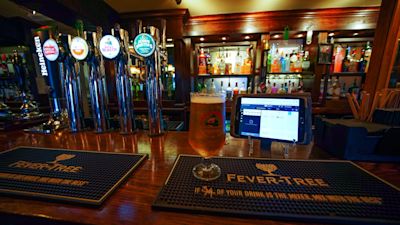Ireland’s restaurants and bars to close at 8pm in bid to tackle Omicron threat

Ireland’s Cabinet has agreed to introduce an 8pm closing time for restaurants and bars and a restriction on indoor events after 8pm amid growing concern about the Omicron coronavirus variant.
Ministers met on Friday evening to implement recommendations from the National Public Health Emergency Team (Nphet).
The new restrictions include:
All restaurants and bars, excluding takeaways and delivery services, must close at 8pm
No indoor events after 8pm
Indoor events before 8pm should be limited to 50% of venue capacity or 1,000 people, whichever is lower
Outdoors events should be limited to 50% of venue capacity or 5,000 people , whichever is lower
Wedding receptions can take place after 8pm but with a capacity limit of 100 guests
The restricted movement of people who are close contacts of Covid positive cases will be enhanced. Those who have received a booster at least one week ago will have to restrict movement for five days and take three antigen tests.
Those who have not yet received a booster must restrict their movement for 10 days. The HSE will consider the best testing regime for people in this category.
All people arriving in the country from overseas will be required to have an antigen or PCR test in line with their vaccination or recovery status.
And all travellers arriving in Ireland should now be advised to conduct antigen testing on a daily basis for a period of five consecutive days commencing on the day of arrival.
Ireland's prime minister Micheal Martin said Omicron was here and we are going to see “a massive rise in infections”. Micheal Martin said: “Left unchecked this new strain will represent a very significant threat to hospitals and critical care, but also a threat to all of society and the economy. “It spreads so aggressively throughout all age groups that we are likely to see infections at a rate that is far in excess of anything we’ve seen to date.” The Nphet recommendations had prompted considerable opposition among some government backbenchers. But the chief medical officer, Dr Tony Holohan, told a briefing of journalists that the Cabinet’s decision to close hospitality from 8pm was “a welcome acceptance of the intention of our advice”. Nphet’s recommendation for a 5pm curfew was part of a “series of recommendations” aimed at reducing the incidence rate, Dr Holohan said.
Listen to our coronavirus podcast:
“The key thing was to drive down, as much as possible, social contact. Contact is going to be a good deal greater in the evening time,” he added. But he welcomed the move, saying it would help slow the spread of Omicron. Ireland could witness up to 20,000 cases a day with 2,000 people in hospital by early January under Nphet’s most pessimistic modelling. Dr Holohan told a briefing on Friday that the Omicron variant makes up 35% of Covid-19 cases in the country. Optimistic models predict 8,000 cases a day and between 650 and 1,000 people in hospital, but there are concerns that increased socialisation at Christmas would exacerbate infections. Nphet members said that even if the variant turns out to be less severe than the Delta strain, its superior growth rate meant hospitals are still under threat. Dr Cillian De Gascun said: “It would be great news if it turned out to be less severe, but its growth advantage remains a serious concern. “It would have to be far, far less severe than Delta for it not to overwhelm our health service.”